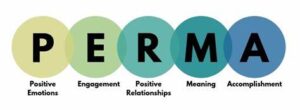The Power of Engagement: Why Active Involvement Matters
Have you ever been so focused on an activity that you lose all sense of time and place? When you look up hours later, you’re shocked at how absorbed you were. Artists might call this state “being in flow.” Athletes sometimes refer to it as “being in the zone.” Scientists describe it as “a state of optimal engagement.”
Whatever the label, most of us intuitively understand the experience of total engagement. We’ve felt it before while cooking an elaborate meal, solving a puzzle, playing a sport, or working on a project that we loved. In those moments of complete focus and energized concentration, we don’t just enjoy the activity – we feel challenged, motivated, and utterly present.
This week, we’ll explore the psychology behind engagement, its characteristics, and why it’s so critical for well-being. You’ll learn research-backed ways to enhance engagement in daily living and experience more productivity, meaning, and joy.
What Exactly Is Engagement?
Engagement refers to a state of intense focus, interest, and enjoyment in an activity. When engaged, you bring the full force of your attention and energy to the task at hand, aka, being present. This leads to a sense of active, alert involvement that researchers call “flow.”
The concept of flow originated with pioneering psychologist Mihaly Csikszentmihalyi. While studying artists, athletes, and workers, Csikszentmihalyi noticed they often entered a zone of complete absorption where challenges were met with skills. This optimal state of consciousness leads to feelings of motivation, control, and reward.
Csikszentmihalyi identified these characteristics of the flow state:
- Intense focus and concentration
- Loss of self-consciousness
- Distorted sense of time
- Direct feedback allowing adjustments in the moment
- Sense of personal control over the activity
- Intrinsic rewards from the activity itself
Ultimately, engagement represents a harmony between our skills and the challenge before us. We become so involved in an experience that all else falls away.
Why Does Engagement Matter?
Engagement may seem like a minor emotional state. In fact, researchers have confirmed its profound impact on cognitive performance, psychological well-being, skill-building, and overall life satisfaction.
Here are just a few of the main benefits:
Boosts Productivity & Performance
Have you ever noticed how work seems to fly by when you’re completely engaged in a project? During flow states, people can tackle complex, demanding tasks with full commitment for hours on end.
Studies show engagement enhances productivity, learning, and performance across many settings. For example, students who report frequent flow experiences get better grades and have higher motivation. Flow at work is linked to higher job satisfaction, better work outcomes, and less burnout.
Athletes, musicians, and artists also achieve peak performance when fully engaged in mastering their craft. By promoting the deepest focus, flow states enable us to actualize our talents.
Provides Enjoyment & Meaning
That feeling of losing yourself in an activity isn’t just productive – it’s also profoundly enjoyable. Flow states activate the brain’s reward centers creating sensations of pleasure, joy, and bliss.
When engaged in meaningful pursuits like hobbies, learning, sports, art, or social causes, people experience happiness along with a sense of purpose. Engagement in activities we care about contributes to a worthwhile, fulfilling life.
Promotes Growth & Development
Full engagement involves seeking challenges at the edge of your abilities. This sparks learning, improvement, and personal expansion.
For example, rock climbers in a state of flow don’t just passively enjoy the sport. They actively set goals, analyze technique, and push themselves to the next level. Over time, this leads to the acquisition of new skills and capacities.
Experiencing flow promotes what psychologist Abraham Maslow called “self-actualization” – the drive to fully develop our talents and reach our human potential.
Enhances Well-Being
Decades of research link flow experiences to greater psychological health and satisfaction with life. People who frequently report flow states have:
- Higher self-esteem
- Lower clinical depression/anxiety
- More positive emotions day-to-day
- Greater resilience against stress
Activities that engage us don’t just make us happier in the moment. Over time, they provide a positive boost to overall well-being.
Finding Flow in Everyday Life
Now that you understand the many benefits of engagement, how can you enhance it in your own activities? Here are some key evidence-based tips:
- Clarify your goals – Flow comes easier when you have a clear direction. Set specific, measurable goals that present a fun challenge.
- Stretch your abilities – Seek tasks that push you just beyond your comfort zone. This sweet spot fosters engagement.
- Focus intently – Eliminate distractions, center yourself, and bring your full concentration to the endeavor.
- Immerse your senses – Engage sight, sound, touch to become fully involved. Sports players describe being absorbed in the “feel” of the game.
- Lose self-consciousness – Let go of worrying about outcomes or how you look. Stay in the present moment.
- Get feedback – Direct input allows micro-adjustments that foster flow. Musicians adjust to bandmates, athletes react to opponents.
- Enjoy the experience – Remember, flow activities are rewarding in themselves. The joy comes from the journey, not just the destination.
Flow states enrich everything from work to hobbies, exercise to socializing. With practice, you can enhance engaged living and its many benefits. Our series will explore specific techniques to find your flow.
In the next article, we’ll dive deeper into practical strategies for immersing yourself in activities. You’ll learn ways to structure your environment, body, and mind to promote the best engagement possible. We all have flow moments now and then – with some science-backed tweaks, they can become a regular occurrence.
The capacity for complete engagement resides in all of us. When channeled toward learning and meaningful activities, it unlocks our human potential and leads to greater fulfillment. Living a life of flow means living a life fully invested, focused, and present.
As Csikszentmihalyi expressed, “Happiness lies at the intersection between pleasure, engagement, and meaning.” Flow represents that sweet spot where what we find enjoyable also challenges us to grow and serves a greater purpose.
Stay tuned as we explore more ways to spend more time at that happy intersection of optimal engagement.
Great Things Never Came From Comfort Zones
Say goodbye to that rut you’ve been stuck in and hello to a brighter future with enLiven Wellness Life Coaching team. Get started today by scheduling a consultation with our team.
Related Resources
enLiven Wellness Coaching, llc is a participant in the Amazon Services LLC Associates Program, an affiliate advertising program designed to provide a means for website owners to earn advertising fees by advertising and linking to amazon.com, audible.com, and any other website that may be affiliated with Amazon Service LLC Associates Program. As an Amazon Associate [I or we] earn from qualifying purchases.
Additional Articles in this Series
This article is part of a series of articles on the five pillars of well-being. The pillars are positive emotion, engagement, relationship, meaning, and accomplishment.

















